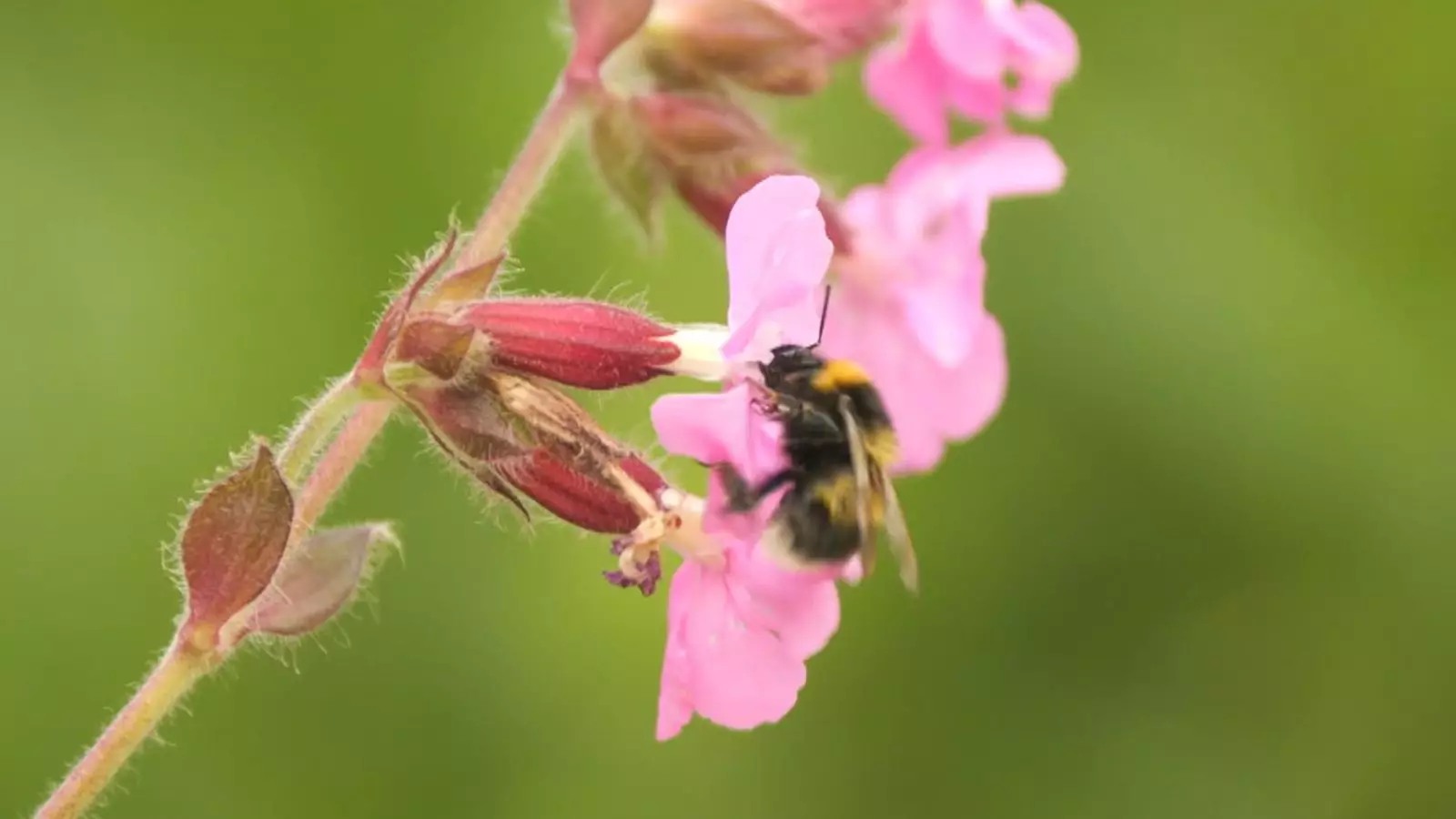In a world increasingly dominated by urban landscapes and agricultural expanses, the struggle of pollinators—particularly bees—often goes unnoticed. Yet, their disappearance is not just an environmental footnote; it’s a siren call warning us of impending ecological disaster. The recent study conducted by scientists at Kew Gardens shines a light on this critical issue: the drastic decline of bee populations driven by habitat loss, climate change, and pesticide usage.
For a moment, consider the profound impact bees have on our food systems and ecosystem services. A staggering 90% of flowering plants rely on these tiny champions for pollination—without them, our agricultural systems could unravel. Alarmingly, data reveals a striking 60% decline in flying insect populations in the UK over the past two decades alone. This decline does not merely signal a loss of biodiversity; it heralds a future where food security hangs by a thread, underscoring an urgent need for attention and action.
A Beacon of Hope: Innovative Research at Wakehurst
Amidst the disheartening statistics, scientists at Wakehurst—home to Kew’s “Wild Botanic Garden”—are pioneering efforts to reverse this trend. By employing advanced bio-acoustics sensors nestled among selected trees, they are deciphering which species make a compelling case for bees. The aim is not only to understand preferences but to inform urban and landscape planning in ways that may alleviate the pressures on these vital pollinators.
The innovative approach taken by Dr. Janine Griffiths-Lee and her team offers a glimmer of hope amid widespread ignorance. Their research uses non-invasive monitoring to create heat maps highlighting bee activitys. This data could be instrumental in guiding future tree planting initiatives—especially in areas where green space is at a premium, such as urban centers increasingly turning into concrete jungles. This study, while groundbreaking, is merely a drop in the ocean of what is required to combat the growing crisis.
Transformative Potential: Beyond the Buzz
In examining the project’s potential impact, one cannot disregard its transformative possibilities—it’s not just about conserving bees; it’s a holistic approach to ecosystem management. Pollinators are a crucial piece of a much larger environmental puzzle. As Susan Raikes, director of Wakehurst, aptly describes the estate as a “living laboratory,” the implications transcend mere academic curiosity; they beckon practical applications that could influence significant policy decisions to combat climate change and biodiversity loss.
The project’s emphasis on identifying the most beneficial tree species contributes to a larger conversation on climate resilience. In an age where climate change is a pervasive threat, knowing which plants are apt to thrive in changing conditions is essential for future-proofing our landscapes.
It’s disheartening, however, to witness the stubborn resistance from some sectors of society regarding the urgency of this crisis. While researchers scramble to piece together these crucial insights, there remains an alarming gap in public awareness and political will to catalyze substantial change. Why aren’t we pouring resources into this realm with the vigor warranted by such a critical situation?
A Call to Collective Responsibility
As the research unfolds, it sets the stage for a call to action: We need collective involvement—government, corporations, and individual citizens alike. The findings should not simply gather dust in academic journals; they must mobilize public and policy engagement across all levels. Urban planners must become champions for biodiverse-friendly designs, incorporating nature into their visions rather than relegating it to the peripheries.
Additionally, raising awareness through community-centered initiatives can bolster local understanding of the threats to pollinators, pushing for changes in consumer behavior, such as supporting organic pesticides and natural farming techniques. The responsibility does not rest solely on scientists but calls us all to participate actively in nurturing our environment.
The current landscape demands more than merely acknowledging the issue; it necessitates a concerted effort toward transformation. Our very survival hinges on the tiny wings of these pollinators, and it’s high time we respond with the urgency they deserve.

Leave a Reply